The Ministry of Health (Minsa), through the National Center for Epidemiology, Disease Prevention, and Control (CDC Peru), reported that six cases of human cutaneous anthrax have been confirmed in the province of Cañete, in people who allegedly…
Blog
-
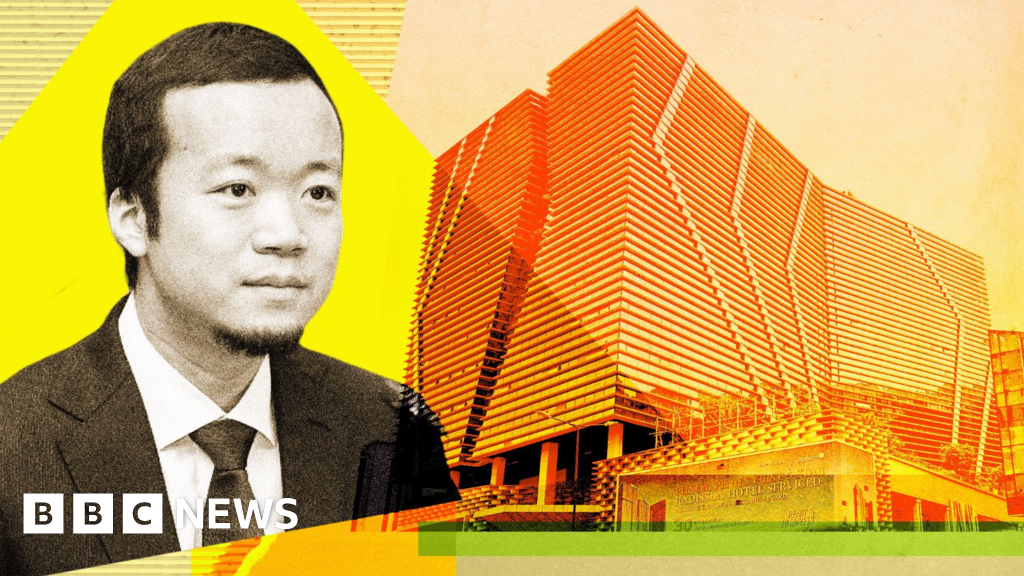
The mysterious ‘scam empire’ owner accused of stealing $14bn in crypto
Jonathan HeadSouth East Asia correspondent
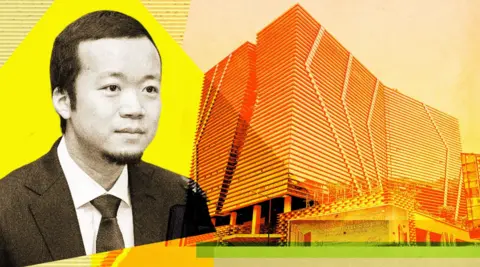 Prince Group/Getty images
Prince Group/Getty imagesJust 37 years old, Chen Zhi is accused of being “the mastermind behind a sprawling cyber-fraud empire… a criminal enterprise built on human suffering”.
With his wispy goatee beard and baby-faced features, he looks even younger than he is. He has certainly become very wealthy, very quickly.
Last week the US Department of Justice charged him with running scam compounds in Cambodia that stole billions in cryptocurrency from victims all over the world. The US Treasury Department has confiscated more than $14bn (£10.5bn) worth of bitcoin that it says is linked to him – it said this was the largest ever crypto-currency seizure.
His own company, the Cambodian Prince Group, describes him on its website as “a respected entrepreneur and renowned philanthropist” whose “vision and leadership have transformed Prince Group into a leading business group in Cambodia that adheres to international standards”. The BBC has contacted the Prince Group for comment.
So, how much do we know about Chen Zhi, the mysterious figure allegedly running a scam empire?
A startling rise
Brought up in Fujian province in south-eastern China, he started with a small, and apparently not very successful internet gaming company, and moved to Cambodia in either late 2010 or 2011, where he began working in the then-booming real estate sector.
His arrival coincided with the start of a speculative property boom in Cambodia. It was fuelled by the availability of large tracts of land expropriated by powerful, politically-connected figures and by a flood of Chinese capital.
Some of it was pouring in on the tail end of Xi Jinping’s Belt and Road Initiative to export Chinese-made infrastructure, and some of it was from individual Chinese investors seeking more affordable alternatives to China’s overheated property market. The number of Chinese tourists visiting Cambodia was also rising fast.
The skyline of the capital Phnom Penh changed dramatically. The characterful, low-rise cityscape of mustard-coloured French colonial mansions was transformed into another Asian high-rise forest of glass and steel towers.
The transformation of Sihanoukville, a once quiet little seaside resort, was even more extreme. It was not just Chinese holidaymakers and property speculators heading there, but also gamblers – gambling is illegal in China.
New casinos sprang up, alongside gaudy, luxury hotels and apartment blocks. There was plenty of money to be made.
Even so, Chen Zhi’s trajectory was startling.
In 2014 he became a Cambodian citizen, giving up his Chinese nationality. This enabled him to buy land in his own name, but required a minimum investment or donation to the government of $250,000.
It was never clear where Chen Zhi’s money came from. When applying for a bank account on the Isle of Man in 2019 he listed an unnamed uncle who he said had given him $2m to start his first property company in 2011, but no evidence for this was ever provided.
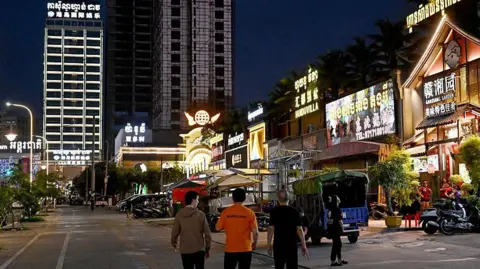 Getty Images
Getty ImagesSihanoukville has been transformed by Chinese investment Chen Zhi founded the Prince Group in 2015, focused on property development, when he was still only 27 years old.
He got a commercial banking licence in 2018 to establish Prince Bank. The same year he obtained a Cypriot passport, in return for a minimum investment there of $2.5m, giving him easy access to the European Union. He later acquired Vanuatu citizenship as well.
He started Cambodia’s third airline, and in 2020 obtained a certificate to operate a fourth. There were luxury malls in Phnom Penh built by the Prince property arm, five-star hotels in Sihanoukville, and an ambitious scheme to construct a $16bn “eco-city” called “Bay of Lights” there.
In 2020 Chen Zhi was awarded the highest title bestowed by Cambodia’s king, that of “Neak Oknha”, which requires a donation of at least $500,000 to the government.
He had already been made an official adviser to Interior Minister Sar Kheng since 2017, was a business partner with his son Sar Sokha, and an official adviser to Cambodia’s most powerful man Hun Sen, and later his son Hun Manet after he succeeded his father as prime minister in 2023.
Chen Zhi was lauded in the local media as a philanthropist, who had funded scholarships for low-income students and donated substantially to help Cambodia deal with the Covid pandemic.
Yet he remained an enigmatic figure, staying out of the limelight, making few public statements.
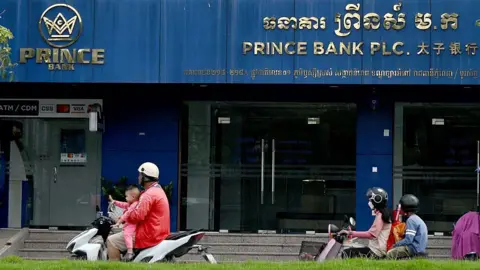 AFP via Getty Images
AFP via Getty ImagesA branch of the Prince Bank in Phnom Penh “Everyone I’ve spoken to who’s worked with him directly, been in the room with him, they all describe him as very courteous, very calm, very measured,” says Jack Adamovic Davies, a journalist who did a three year-long investigation of Chen Zhi which was published by Radio Free Asia last year.
“I think not being the kind of flamboyant person that people will write tabloid-y things about was smart. Even those who no longer want to be associated with him are still impressed by his quiet charisma, his gravitas.”
But where was all this wealth and power coming from?
‘A litany of transnational crimes’
In 2019 the property bubble burst in Sihanoukville. The online gambling business had attracted Chinese criminal syndicates, who then began violent turf wars with each other. Tourists were scared off.
Under pressure from China, then-prime minister Hun Sen banned online gambling in August that year. Around 450,000 Chinese left the city as its main business collapsed. Many of Prince Group’s residential blocks were left empty.
Yet Chen Zhi continued to expand his business interests and spend freely.
According to the UK authorities, in 2019 he bought a £12m mansion in north London and a £95m office block in the city’s financial district. The US says he and his associates bought properties in New York, private jets and superyachts, and a Picasso painting.
And, they allege, Chen Zhi’s wealth came from the most profitable business in Asia today, online fraud, and the human trafficking and money laundering that go with it.
The US and UK have imposed sanctions on 128 companies linked to Chen Zhi and Prince Group, and on 17 individuals from seven different nationalities who they allege helped run his scam empire. Assets linked to Chen Zhi in the US and UK have been frozen.
 US District Court EDNY
US District Court EDNYCourt documents contained images of “phone farms” allegedly used to conduct scams The sanctions announcement describes an elaborate web of shell companies and cryptocurrency wallets through which money was moved to conceal its origins.
It says: “Prince Group Transnational Crime Organisation profits from a litany of transnational crimes including sextortion – a type of fraud involving the solicitation for eventual blackmail of sexually explicit materials, often from minors – money laundering, various frauds and rackets, corruption, illegal online gambling, and the industrial-scale trafficking, torture, and extortion of enslaved workers in furtherance of the operation of at least 10 scam compounds in Cambodia.”
The ‘scam empire’
China too had been quietly investigating the Prince Group since at least 2020. There have been a number of court cases accusing the company of running online fraud schemes.
The Beijing Municipal Public Security Bureau has established a task force “to investigate the “Prince Group, a major transnational online gambling syndicate based in Cambodia”.
At its heart, the US and UK allege, were businesses like Golden Fortune Science and Technology Park, a compound built by the Prince Group in Chrey Thom, close to the Vietnamese border.
In the past the Prince Group has denied any involvement in scams, and said it no longer has any connection to Golden Fortune, but the US and UK investigation argues that there is still a clear business link between them.
Mr Adamovic Davies interviewed a number of people living and working near Golden Fortune for his investigation into Chen Zhi. They described brutal beatings of the mainly Chinese, Vietnamese and Malaysians who tried to escape from the compound, where they were forced to run online scams.
“I think it’s the sheer scale of his operations which really makes Chen Zhi stand out,” he says, adding that it is shocking the Prince Group was able to build a “global footprint” without raising alarm bells given the serious criminal charges it now faces.
“What should be uncomfortable for a lot of people is that Chen Zhi should never have been able to acquire all these assets, in Singapore, London or the US. Lawyers, accountants, real estate agents, bankers, all should have been looking at this group and saying, hang on, this doesn’t add up. And they didn’t.”
 AFP via Getty Images
AFP via Getty ImagesThe Prince International Plaza in Phnom Penh Today, after all the publicity generated by the US and UK sanctions, businesses are rushing to dissociate themselves from the Prince Group.
The Cambodian Central Bank has had to issue a statement to nervous depositors assuring them they will be able to withdraw their funds from Prince Bank. The South Korean authorities have frozen $64m of its deposits held by Korean banks.
The Singapore and Thai governments are promising investigations into Prince subsidiaries in their jurisdictions – of the 18 individuals targeted by the US and UK, three are Singaporeans.
Cambodia’s government has said little, apart from urging the US and UK authorities to be sure they have sufficient evidence for their allegations.
But it will be difficult for Cambodia’s ruling elite to distance themselves from Chen Zhi, after being so close to him for so long. Cambodia was already facing growing pressure over its tolerance of scam businesses, which some estimate may account for around half of the entire economy.
And what of Chen Zhi himself?
Nothing has been heard or seen of him since the sanctions were announced last week. The enigmatic tycoon, once among the most powerful figures in Cambodia, appears to have vanished.
Continue Reading
-

Meghan Markle teases new ‘As Ever’ range in refreshing video: Watch
Meghan Markle teases new ‘As Ever’ range in refreshing video: Watch Meghan Markle is teasing a new update for ‘As Ever’ fans.
The Duchess of Sussex, who took a hiatus in rolling out her lifestyle products, is bck…
Continue Reading
-
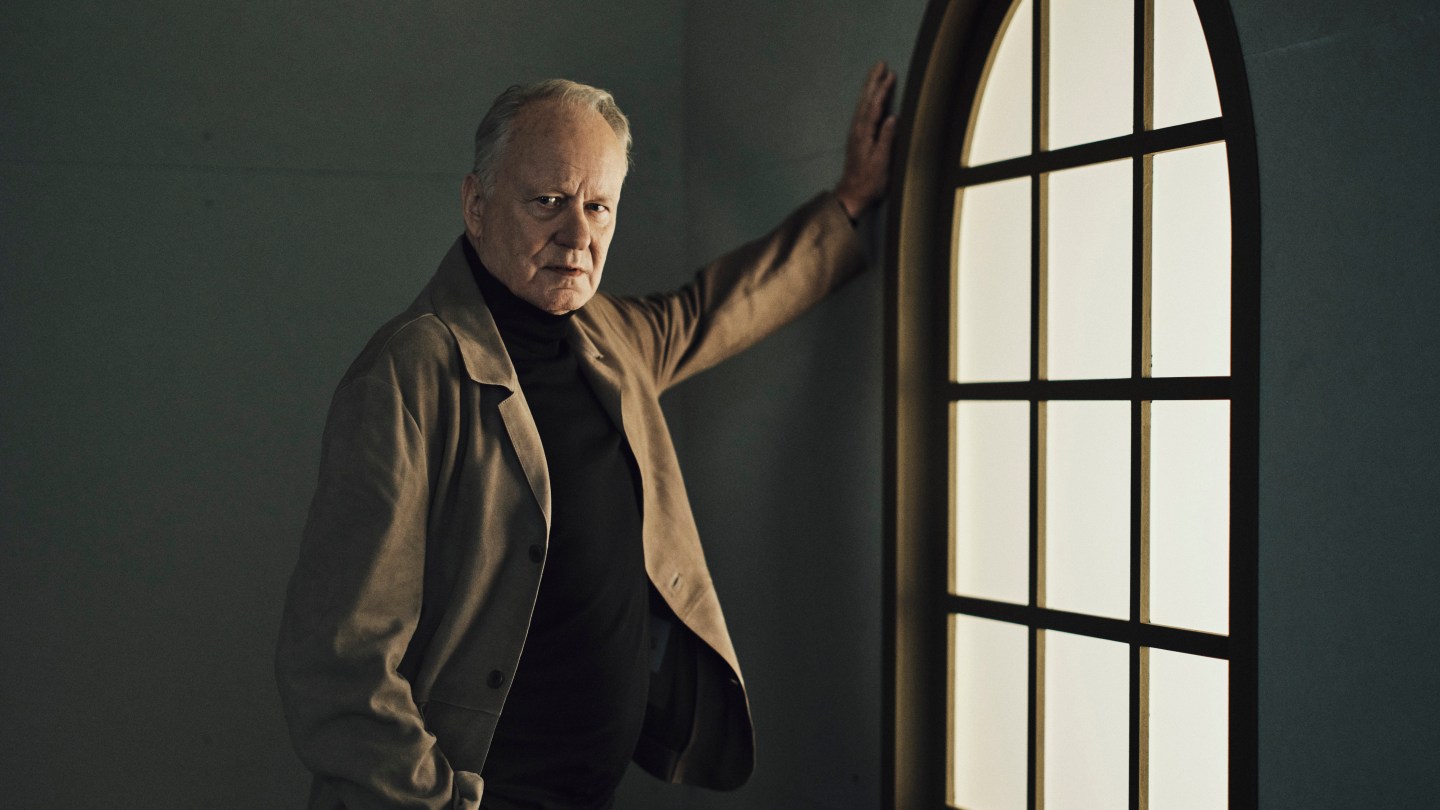
Stellan Skarsgard Opens Up About Acting Struggles After Stroke
Three years after Stellan Skarsgard suffered a significant stroke, he opened up about how the medical emergency has created challenges in his acting career.
“I found a way,” Skarsgard told Vulture about how he remembers his lines in an…
Continue Reading
-
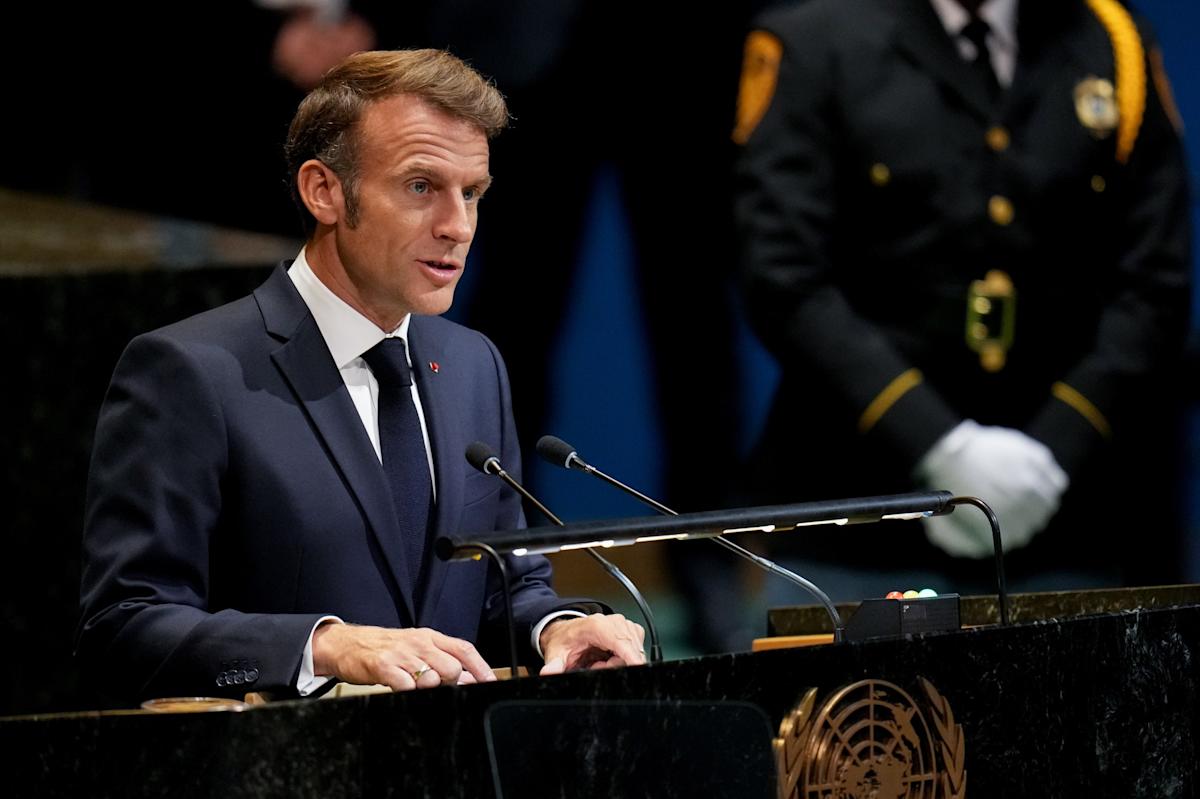
Macron Tells EU to Weigh Using Strongest Trade Tool on China
France’s president Emmanuel Macron
(Bloomberg) — French President Emmanuel Macron told European Union leaders to consider using the bloc’s most powerful trade tool against China if they aren’t able to find a resolution to Beijing’s planned export controls on critical raw materials.
Most Read from Bloomberg
Macron said they need to weigh using all options available against China, including the EU’s so-called anti-coercion instrument, according to people familiar with the matter.
He made the statement to his counterparts during a leaders’ summit in Brussels Thursday, said the people, who spoke on the condition of anonymity. The French presidency didn’t respond to a request for comment.
“This is economic coercion,” Macron told reporters after the summit, referring to the Chinese announcement on rare earths, without commenting on the specifics of the closed-door conversation. “We can see the impact it is having on us and we need to be able to respond.”
China announced plans to significantly tighten controls on its exports of rare earths and other critical materials earlier this month. Under the measures, overseas exporters of items that use even traces of certain rare earths sourced from China would need an export license.
The export restrictions would pose a massive threat to Europe’s industry and security, as the inputs are critical across sectors and used in everything from electric vehicle batteries to defense manufacturing.
Following the summit, German Chancellor Friedrich Merz confirmed that the anti-coercion tool was discussed but that no decision had been reached on using it. He said it was now up to the European Commission, which handles trade matters for the EU, to decide whether to deploy the ACI.
The ACI, which has never been used, was designed primarily as a deterrent, and if needed, to respond to deliberate coercive actions from third countries that use trade measures as a means to pressure the policy choices of the EU or its members.
The instrument was created as part of the EU’s effort to boost its trade defenses after the US imposed tariffs on the bloc’s exports during the first Trump administration. Another factor was China’s decision to place restrictions on Lithuanian goods after Taiwan opened a trade office in the Baltic nation.
Use of the EU’s most potent trade tool is unlikely at this stage as it would significantly escalate tensions with China. France has called for using the instrument before, including during trade talks with the US. But the drive never fully gained traction.
Continue Reading
-

Australia says H5 bird flu suspected in sub-Antarctic island
SYDNEY (Reuters) -Australia said on Friday that scientists had seen symptoms consistent with the destructive H5 bird flu strain on its sub-Antarctic Heard Island in the Southern Ocean, after unusual levels of deaths of elephant seals.
“At this…
Continue Reading
-
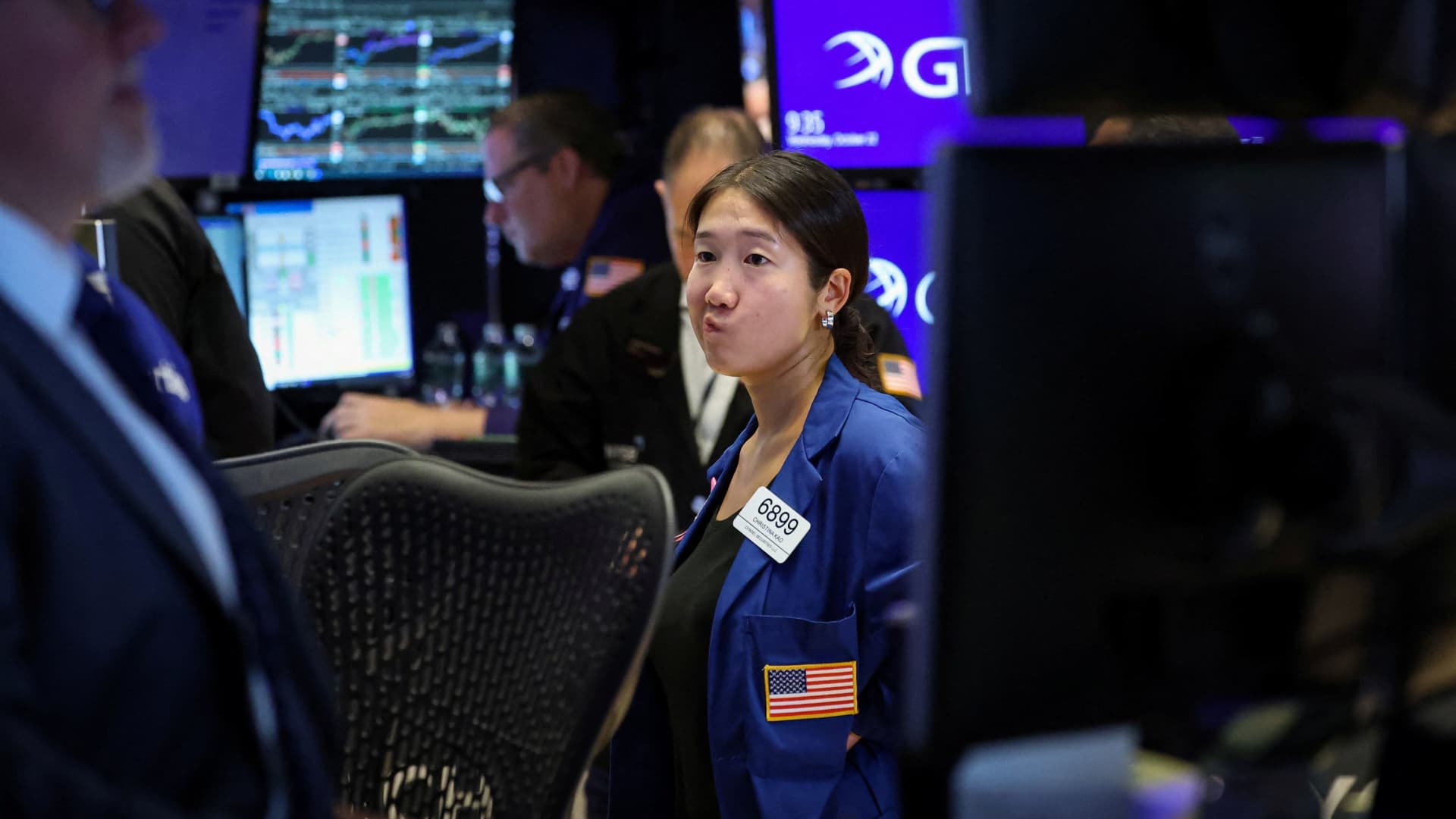
Stock market today: Live updates
Traders work on the floor at the New York Stock Exchange (NYSE) in New York City, U.S., Oct. 22, 2025.
Brendan McDermid | Reuters
Stock futures are little changed Thursday night ahead of a key inflation print.
Futures tied to the Dow Jones Industrial Average fell 13 points, or 0.03%. S&P futures ticked up 0.06%, while Nasdaq 100 futures added 0.1%.
In after-hours trading, Intel shares popped nearly 7% after the chipmaker reported third-quarter sales that exceeded analysts’ estimates. Target shares rose marginally after the retailer announced it would slash its corporate workforce by 8%, marking its first major layoff in a decade. Applied Materials and Rivian also announced layoffs.
The three major U.S. indexes ended the previous session higher, driven by inflows into tech stocks and bullish sentiment heading into the heat of third-quarter earnings season. The S&P 500 rose nearly 0.6%, while the Dow Jones Industrial Average gained 144 points, or 0.3%. The tech-heavy Nasdaq Composite outperformed, closing the day 0.9% higher as heavyweight AI stocks such as Nvidia and Oracle got a boost.
Investors are awaiting Friday’s release of the September consumer price index report, which could be a market-moving event given the lack of federal data being released amid the ongoing U.S. government shutdown. Wall Street will be watching for any signs on if inflation is cooling or getting hotter, and if tariffs are affecting consumer prices.
The CPI, which was supposed to be released Oct. 15, will be the last economic reading before the Federal Reserve’s October meeting next week. Markets widely expect the Fed to lower interest rates by another quarter percentage point.
“Markets remain cautious, as the lack of clean economic data adds uncertainty for both the Fed and investors,” said Vishal Khanduja, head of broad markets fixed income at Morgan Stanley Investment Management. “Until more reliable data emerges, the Fed is likely to adhere to market-priced expectations, though Friday’s CPI should provide greater clarity. The impact of tariffs creeping into inflation will be key.”
Stocks are on pace to notch weekly gains, after Thursday’s moves erased Wednesday’s losses. The S&P 500 is tracking for a 1.1% gain, while the Nasdaq and the 30-stock Dow are up nearly 1.2%.
Continue Reading
-
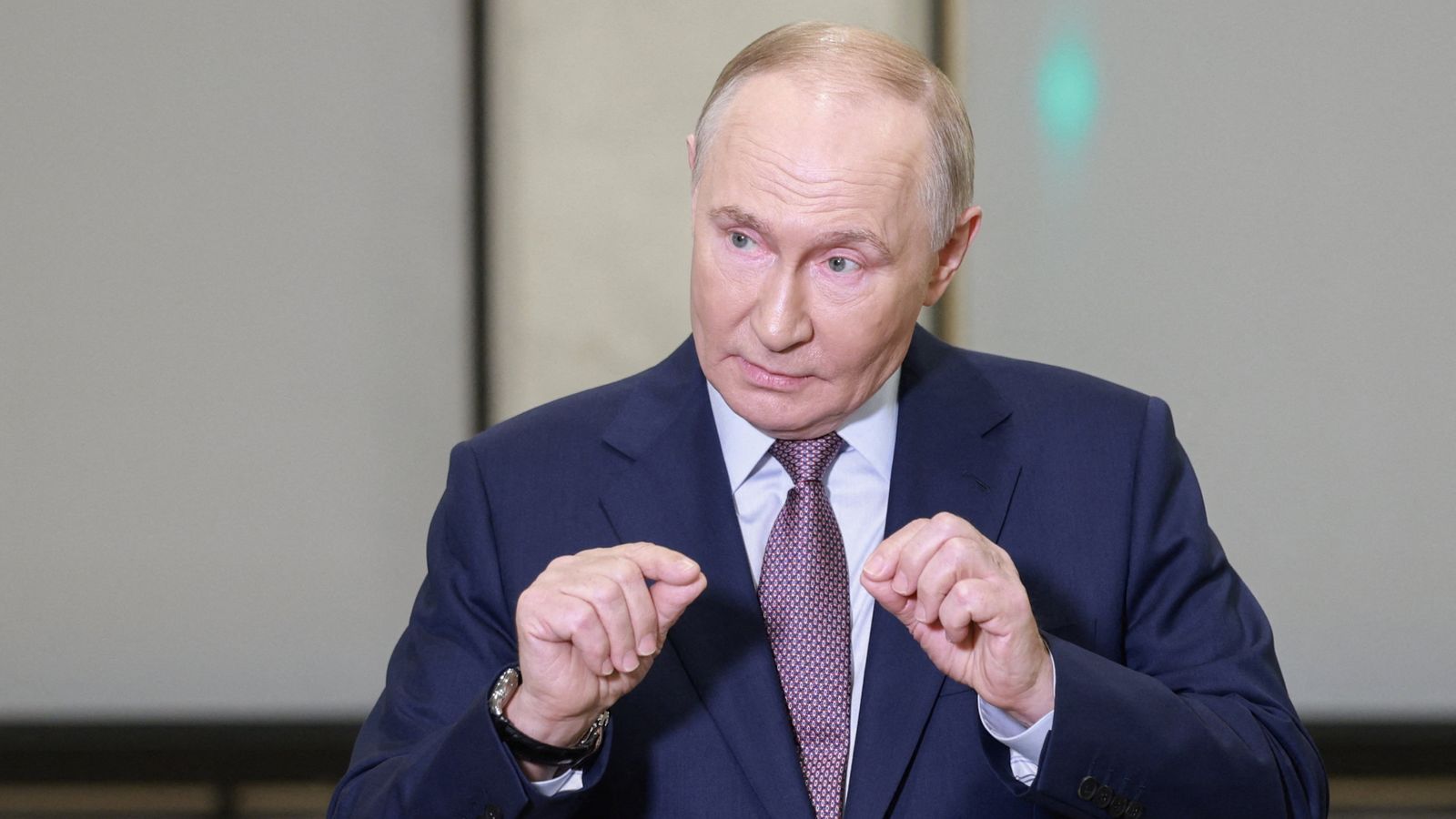
Defiant Putin insists Trump’s sanctions on oil companies won’t affect Russia’s economy | World News
Vladimir Putin has described Donald Trump’s sanctions against two major oil firms as an “unfriendly act”.
However, the Russian president has insisted the tightened restrictions won’t affect the nation’s economy, a claim widely…
Continue Reading
-

When Mallika Sherawat Left The Country After She Was Bullied
In India, there are many of people who want to work as actors and establish themselves in the motion picture business. In an attempt to make an impact on Bollywood, a lot of men and women relocate to Mumbai, the city of dreams. The actor in…
Continue Reading
-
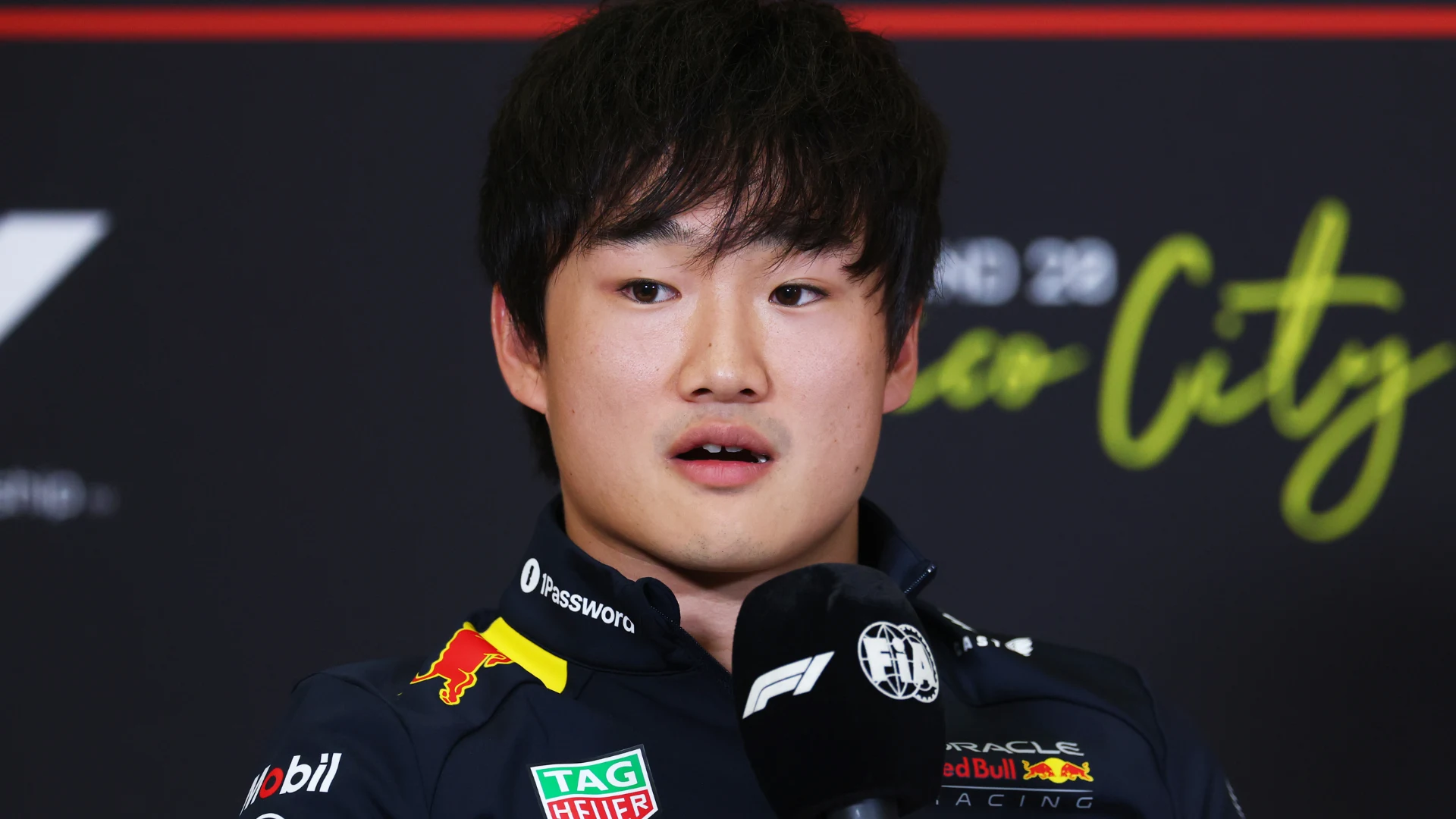
Yuki Tsunoda apologises to Racing Bulls for ‘very unnecessary’ Liam Lawson comments after Austin
Yuki Tsunoda has apologised to the Racing Bulls team for comments he made about Liam Lawson after Qualifying last time out at the United States Grand Prix, with the Japanese driver labelling his remarks as “very unnecessary”.
Tsunoda had hit…
Continue Reading

